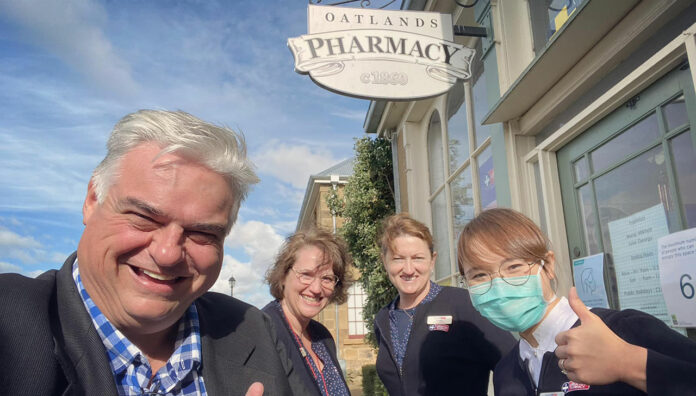
In the lead up to the federal election, Australian Pharmacist asks pharmacists across the country what they would like to see changed when it comes to remuneration.
For community pharmacist Ilwoo Park MPS, better remuneration begins with a better understanding of what pharmacists are worth.
Pharmacists are often lauded as the most accessible healthcare professionals, and are often the only regular healthcare professionals in rural and regional towns.
While this is a positive, Ms Park, a Pharmacist Manager in the rural Tasmanian town of Oatlands, said it is easy for members of the public to overlook the important role pharmacists play.
‘Every other healthcare professional you have to make an appointment,’ she told Australian Pharmacist. ‘But my time and my assistants’ time isn’t always valued. People come in and get answers and that’s it.
‘If someone has been put on metformin, I might spend 10 or 15 minutes with them. I’ll provide the CMI, lifestyle advice, sometimes I’ll even draw up a healthy eating menu, and patients don’t pay for any of that. They’ll pay $20 for the medicine and that’s it for the whole service.’
The solution, Ms Park said, is for pharmacists to know their own worth – and to expect to be compensated for it.
For example, asking for a nominal fee to perform services such as blood pressure checks.
‘At my previous pharmacy, we used to charge for this service,’ Ms Park said. ‘When I started [in Oatlands] 4 years ago, I decided to do the same … We record the blood pressure and provide a print out the patient can take to the doctor’s [clinic].’
While some patients didn’t want to pay to begin with, Ms Park said they now ask how much a service is when they enquire about it.
‘It wasn’t about making money – I just wanted people to understand that it wasn’t free,’ she said.
‘If you go to see a doctor, even if the doctor doesn’t write a prescription, they’re still paid by the government for their time. That doesn’t happen for us.’
Advocating for the profession
Ms Park took part in PSA’s National Advocacy Day of Action last month, inviting her local MP into her pharmacy. She said the profession needs to organise more events that show the value of pharmacists to the wider community.
‘There’s the feeling that every town needs a doctor, but not many people feel that every town needs a pharmacist,’ she said. ‘They think the town needs a pharmacy but not a pharmacist.
‘That’s because nobody really talks about what pharmacists do. I think we need to let the public know what we do and how well we do it.’
For Ms Park, working as a pharmacist means ‘trying to be better today than yesterday’.
‘I’m not doing anything outstanding,’ she said. ‘I just try to learn more about a patient than I knew yesterday and do a thorough job. But we should be fairly compensated for it.’
Get involved in PSA’s fight for fair remuneration for pharmacists.






 ‘We’re increasingly seeing incidents where alert fatigue has been identified as a contributing factor. It’s not that there wasn’t an alert in place, but that it was lost among the other alerts the clinician saw,’ Prof Baysari says.
‘We’re increasingly seeing incidents where alert fatigue has been identified as a contributing factor. It’s not that there wasn’t an alert in place, but that it was lost among the other alerts the clinician saw,’ Prof Baysari says.




